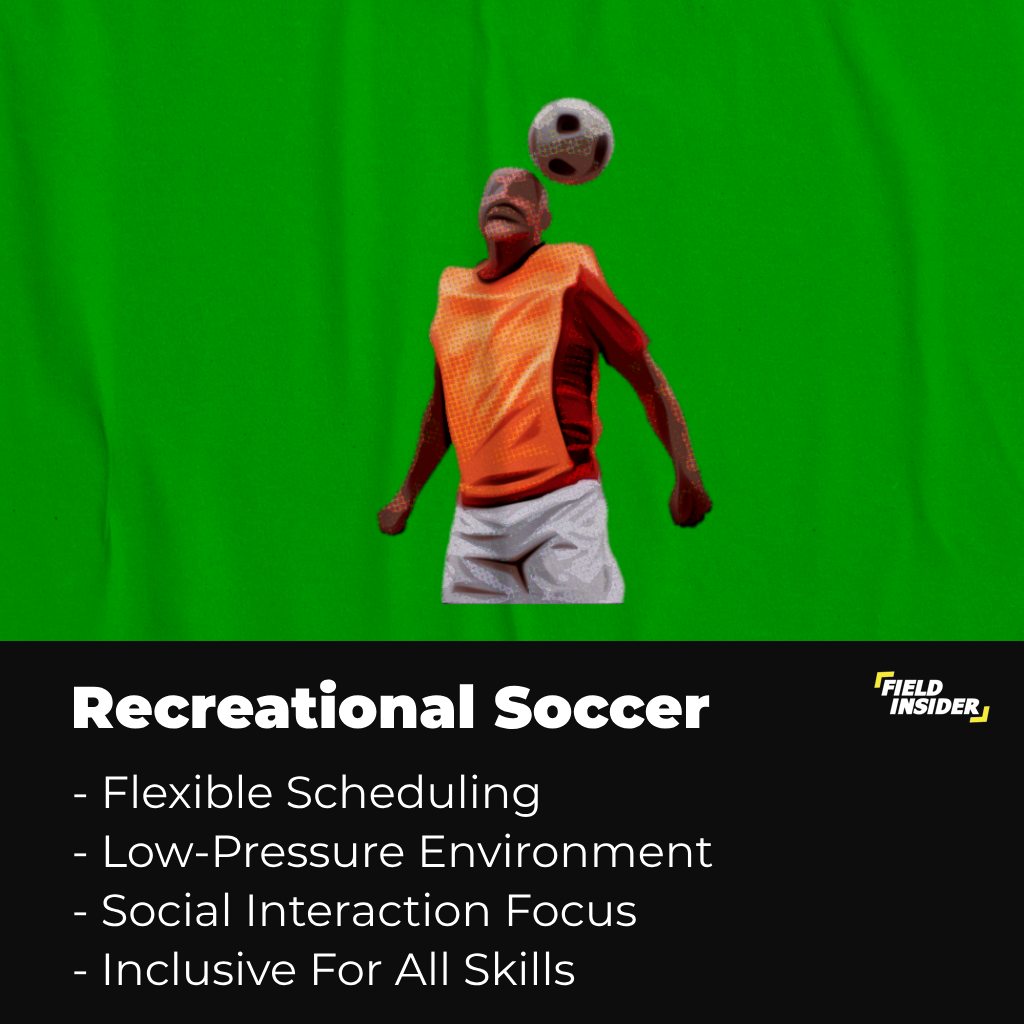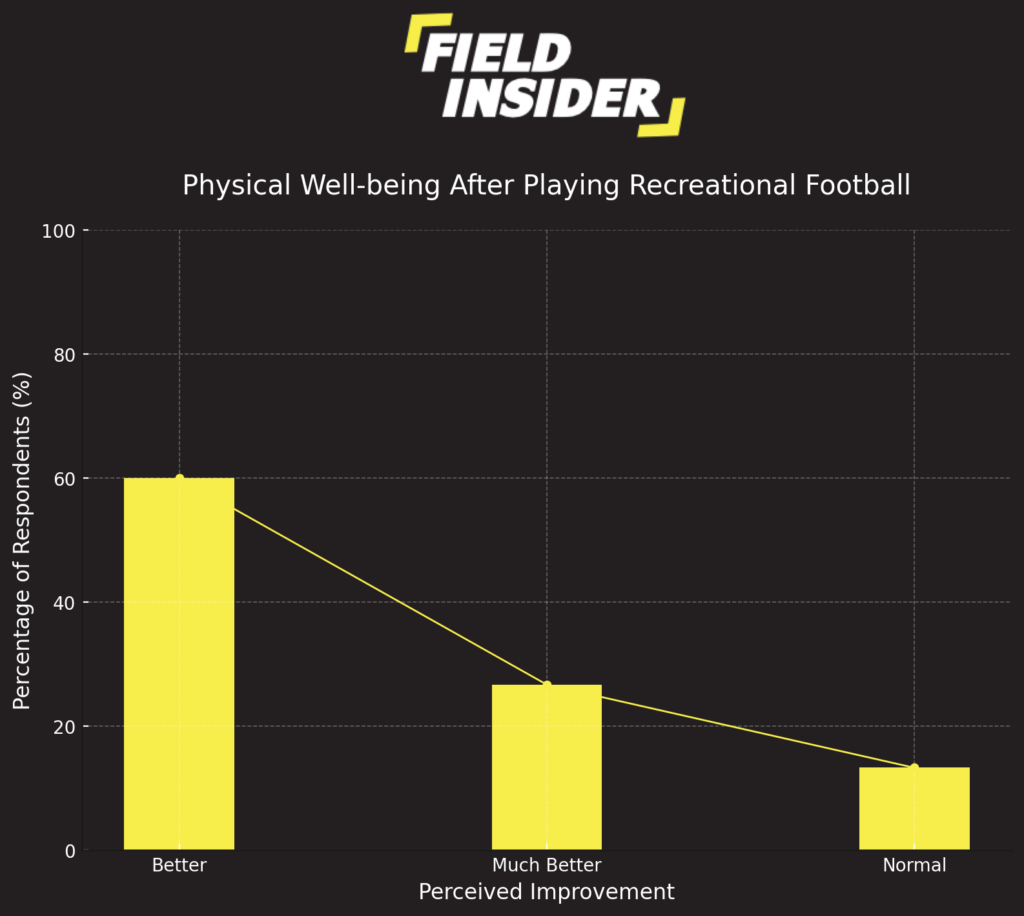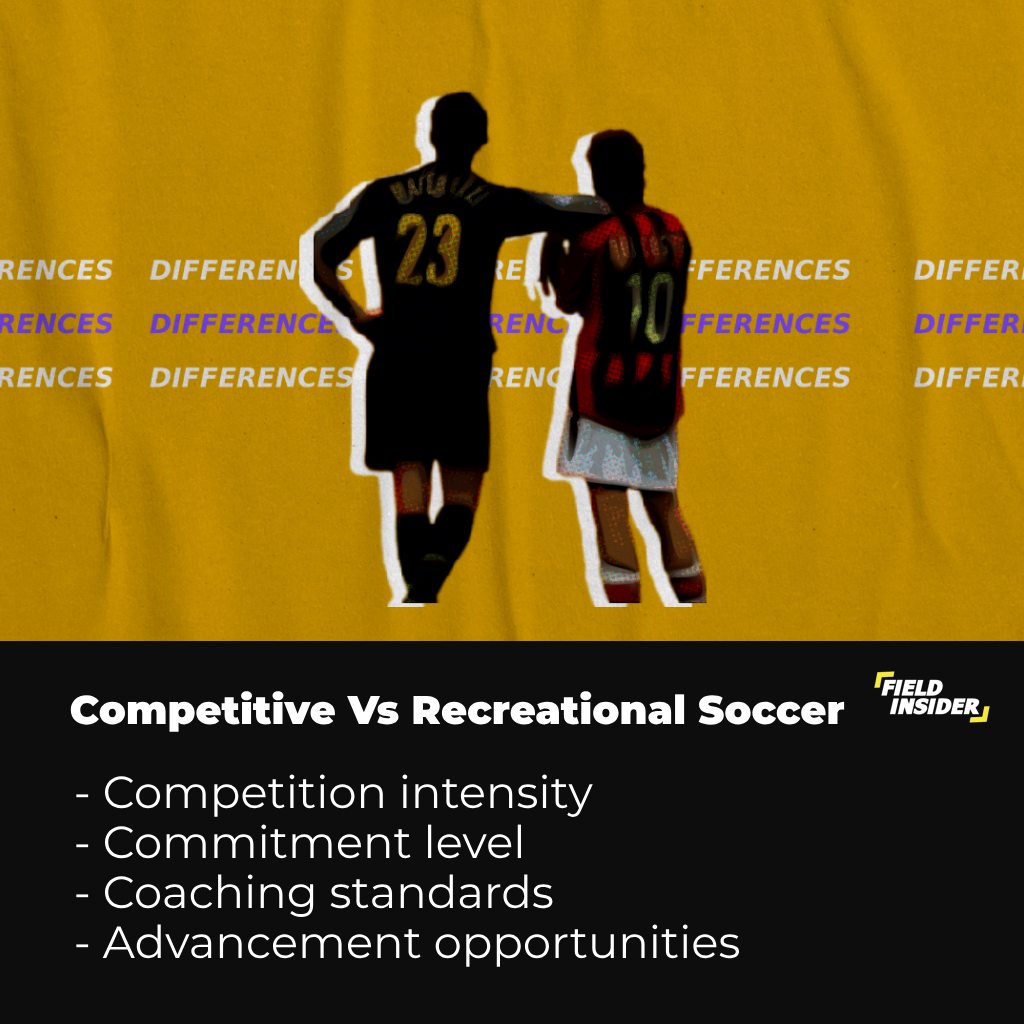Competitive Soccer vs Recreational Soccer: All You Need to Know
Soccer, a sport beloved around the globe, offers diverse pathways for participation that cater to a wide range of aspirations, skill levels, and lifestyle needs. At the heart of this diversity lies the distinction between competitive and recreational soccer—each offering unique experiences, challenges, and rewards.
Understanding the differences between these two forms of the sport is crucial. This knowledge is essential for players, parents, and coaches as they navigate the soccer landscape. This article delves into the defining characteristics of competitive and recreational soccer.
Key Takeaways
| Aspect | Competitive Soccer | Recreational Soccer |
|---|---|---|
| Focus | Skill development, high commitment, performance | Fun, social interaction, low-pressure |
| Scheduling | Fixed, demanding schedule | Flexible, accommodates personal availability |
| Environment | Organized leagues, competitive | Casual play, community-focused |
| Commitment | High (time and financial) | Lower, more accessible |
| Coaching | Professional, focused on improvement | Often volunteer-based, more relaxed |
| Objectives | Improvement, winning, advancement | Enjoyment, health, socializing |
| Choice Factors | Goals, lifestyle, skill level, ambition | Personal enjoyment, social life, casual play |
Competitive Soccer: The Real Deal
Competitive soccer represents the pinnacle of commitment and dedication in the soccer world. It attracts players who are serious about their development and performance. This segment of the sport is not just about playing soccer; it’s about striving to be the best.
High-level Commitment
Competitive soccer demands an unparalleled level of commitment from its participants. Players are often required to attend multiple training sessions each week and travel for games. They also participate in tournaments and leagues that test their skills and endurance.
This commitment extends beyond the field, encompassing physical conditioning, nutritional discipline, and mental preparation. The time and financial investment in competitive soccer can be significant, but the rewards, in terms of personal and athletic development, are substantial.
Skill Development and Performance
At the heart of competitive soccer is the relentless pursuit of skill development and performance excellence. Players work tirelessly to improve their technical abilities, tactical knowledge, and physical fitness.
Coaches in competitive leagues are often highly experienced and provide structured, intensive training to help players reach their potential. This focus on continuous development is what sets competitive soccer apart. It aims to prepare players for collegiate, semi-professional, or professional opportunities.
Organized Competition
Competitive soccer offers a structured pathway for players to test and showcase their skills against equally motivated and skilled opponents. Leagues, tournaments, and championships provide a platform for athletes to compete at local, national, and sometimes international levels.
These organized competitions are not just about winning; they are about learning to deal with pressure, overcoming challenges, and experiencing the highs and lows of the sport. The journey through competitive soccer leagues and tournaments is a crucible that shapes players. It imparts lessons in teamwork, discipline, and resilience.
Challenges and Benefits
While the challenges of competitive soccer—such as the physical demands, time commitment, and emotional pressure—are significant, the benefits can be life-changing. Players develop a strong work ethic, leadership skills, and a competitive edge that transcends sports and applies to all areas of life.
The opportunity to earn scholarships, gain exposure to professional scouts, and make lifelong friendships are few of the rewards that come with competing at this level.
Moreover, the sense of achievement and personal growth experienced through competitive soccer is unparalleled, making every challenge worth the effort.
Recreational Soccer: Playing for Fun
Recreational soccer stands as a testament to the joy and happiness that the sport can bring, emphasizing the love of the game over the pressures of high-stakes competition. It caters to a wide audience, from children to adults, providing a welcoming environment for all who wish to play.

Flexible Scheduling and Low-pressure Environment
One of the hallmarks of recreational soccer is its flexible approach to scheduling. This accommodates players with varying availabilities and commitments outside of soccer. This flexibility allows individuals to enjoy the game without the stress of rigorous training schedules.
The low-pressure environment encourages players to focus on the fun aspects of soccer, making it an ideal choice for those looking to stay active, enjoy the sport, and balance other life responsibilities.
Recreational leagues understand that soccer is just one part of a player’s life, offering a supportive and accommodating atmosphere.
Focus on Enjoyment and Social Interaction
Recreational soccer places a significant emphasis on enjoyment and social interaction, making it more than just a sport—it’s a community activity. Players often join recreational leagues to meet new people and enjoy time with friends. They also bond with family members on the field.
The social aspect of recreational soccer is as important as the physical activity, providing a sense of belonging and a way to connect with others who share a love for the game. This focus on fun is what draws many to recreational soccer, as it offers a stress-free environment to play and make lasting memories.
Varied Skill Levels and Inclusive Atmosphere
The inclusive nature of recreational soccer is one of its most appealing features. Leagues and teams welcome players of all skill levels, from beginners to those with experience. This includes individuals who may not wish to commit to the demands of competitive play.
This diversity creates a unique and supportive environment where players can learn from each other, improve their skills at their own pace, and enjoy the game without the pressure to perform.
The emphasis on inclusivity ensures that everyone, regardless of their soccer ability, can participate and feel valued within the team.
Advantages and Limitations of Recreational Soccer
Recreational soccer offers numerous advantages, including physical exercise, stress relief, and the opportunity to engage in a team sport without the intensity of competitive play. It’s an excellent way for individuals to stay active, enjoy the outdoors, and partake in a healthy lifestyle.
However, those seeking to pursue a path in competitive soccer might find the limitations in coaching and skill development opportunities within recreational soccer.
Despite these limitations, the benefits of recreational soccer—fostering friendships, enjoying leisure time, and improving physical health—make it a cherished part of many people’s lives.
The Recreational Game: A Catalyst for Physical Well-being
A random sample of 15 male participants, all engaged in amateur football recreationally, served as the subject of the study, “Psychophysical benefits of recreational five-aside football” that informed the creation of following bar chart.
Within this group, 13.3% had experience in competitive football, highlighting a transition to a more leisurely engagement with the sport.

The bar chart visually encapsulates the physical well-being participants experience through recreational football.
It shows a substantial majority reporting an improvement in their physical state, with 60% feeling “Better” and 26.7% feeling “Much Better,” while a smaller segment of 13.3% reported feeling “Normal” following their participation in the game.
This chart not only presents statistical data but also underscores the importance of recreational football as a beneficial physical activity. It provides compelling evidence that recreational soccer, even when practiced with varying frequency, can have a positive impact on physical well-being.
This emphasizes recreational soccer’s role not just as a pastime, but as a contributor to a healthy lifestyle, showcasing its value in the realm of amateur sports.
Key Differences Between Competitive and Recreational Soccer
Understanding the key differences between competitive and recreational soccer is crucial for players, parents, and coaches to make informed decisions that align with their goals, abilities, and interests. These distinctions shape the experience and expectations of all involved.

Level of Competition and Intensity
The level of competition and intensity is a defining difference between competitive and recreational soccer.
In competitive soccer, players and teams strive for excellence. Every match and training session is designed to push athletes to their limits.
Conversely, recreational soccer offers a more relaxed atmosphere where the emphasis is on enjoyment, participation, and the social aspects of the game rather than the outcome of matches.
Time and Financial Commitments
Competitive soccer requires a significant time and financial commitment from players and their families. This includes extensive training schedules, travel for tournaments, and additional costs for equipment, coaching, and league fees.
The dedication to competitive soccer can impact other areas of life, requiring careful balance and prioritization.
On the other hand, recreational soccer is designed to fit into a more balanced lifestyle, with fewer demands on time and money. This makes it accessible to a wider range of participants who may have other commitments or limited resources.
Coaching and Training Standards
The quality and intensity of coaching and training also vary significantly between competitive and recreational soccer. Competitive teams typically have access to highly qualified coaches who employ advanced training methods, tactical instruction, and performance analysis.
In contrast, recreational soccer coaches may be volunteers or less experienced coaches focusing on basic skills, teamwork, and ensuring that all players have a positive experience. While still valuable, the coaching in recreational soccer is generally not as focused on elite skill development.
Opportunities for Advancement and Recognition
Competitive soccer provides players with opportunities for advancement and recognition that are not available in recreational soccer. Competitive leagues and tournaments often serve as platforms for players to showcase their talents and gain exposure.
Recreational soccer, while offering its own rewards, does not typically provide a pathway to higher levels of play. The focus is on personal enjoyment and community involvement rather than career advancement in the sport.
Overall Objectives and Motivations
Finally, the overall objectives and motivations behind participating in competitive versus recreational soccer highlight a fundamental difference.
Competitive soccer players are often driven by a desire to excel, achieve personal and team goals, and pursue opportunities in soccer beyond the youth level.
Recreational players, while also motivated by a love for the game, prioritize fun, health, and social engagement over competitive success. These differing motivations influence the approach to training, the nature of competition, and the community culture within each sphere of soccer.
Making the Right Choice: Factors to Consider
Deciding between competitive and recreational soccer is a significant decision that can impact a player’s enjoyment of the game, development, and lifestyle. Several factors should be considered to ensure the choice aligns with the player’s goals, abilities, and personal circumstances.
Personal Goals and Aspirations
The decision should start with a clear understanding of the player’s personal goals and aspirations in soccer. Those who dream of playing at a higher level, may find competitive soccer more aligned with their ambitions. This path offers rigorous training, high-level competition, and exposure to scouts.
On the contrary, if the goal is to enjoy the game, stay active, and meet new people, recreational soccer provides a platform that emphasizes fun, community, and a love for the game without the pressure of intense competition.
Time Availability and Lifestyle Considerations
Time availability and lifestyle considerations are critical factors in this decision. Competitive soccer requires a considerable time commitment, not just for training and matches but also for travel and recovery. This can impact academic responsibilities, family time, and other interests.
Recreational soccer, with its flexible scheduling and less demanding nature, may be more suitable for those balancing multiple commitments or seeking a more relaxed involvement in the sport.
Skill Level and Competitive Mindset
Assessing the player’s current skill level and competitive mindset is essential. Competitive soccer can be highly rewarding for those with the skills and desire to challenge themselves against the best.
However, it can also be frustrating and demotivating for those not yet at that level or who do not thrive in highly competitive environments.

Recreational soccer offers a platform for players of all skill levels to enjoy the game, improve at their own pace, and participate in a less pressure-filled environment.
Social Preferences and Desire for Teamwork
Consideration of social preferences and the desire for teamwork can guide players to the right choice. Competitive soccer often fosters a strong team bond and camaraderie, born out of shared goals and challenges.
However, the competitive nature may not suit everyone’s social preferences. Recreational soccer is known for its inclusive and friendly atmosphere, making it ideal for those who prioritize socializing and enjoying the game in a community setting.
Balancing between Competitiveness and Enjoyment
Finally, finding the right balance between competitiveness and enjoyment is crucial. This involves weighing the desire to improve and compete at a higher level against the wish to play soccer for the joy and social aspects it brings.
The ideal choice allows the player to fulfill their competitive aspirations while still enjoying the game and maintaining a balanced lifestyle.
Conclusion
In conclusion, the choice between competitive and recreational soccer is deeply personal and depends on a variety of factors, including personal goals, time availability, skill level, and social preferences.
Competitive soccer offers a pathway for those with the dedication, skill, and ambition to push themselves to higher levels of the sport, providing opportunities for advancement, rigorous training, and a focus on performance.
Recreational soccer, with its emphasis on fun, social interaction, and flexibility, caters to those seeking enjoyment and community through the beautiful game.
Whether aiming for the heights of professional play or simply looking to enjoy the game with friends, the most important aspect is finding joy and personal growth in the journey of soccer.








